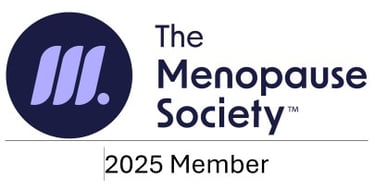Nourishing the Mind: How Magnesium, Vitamin D, and K2 Support Mental Health
Mental health challenges are on the rise, with anxiety, depression, and mood disorders affecting millions worldwide. While therapy and prescription medications remain essential, emerging research highlights a powerful yet often overlooked ally in mental wellness: nutrition.
The Nutrient-Mental Health Connection
Deficiencies in key nutrients, especially magnesium and vitamin D, can significantly impact emotional resilience, stress response, and cognitive function. These nutrients play vital roles in brain chemistry, and low levels are increasingly linked to symptoms of anxiety, depression, and mood instability. Understanding and addressing these deficiencies may be a step toward better mental health.
Magnesium: The Mood-Stabilizing Mineral
Magnesium supports over 300 biochemical reactions in the body, many of which regulate the nervous system. It helps balance neurotransmitters, modulates the stress-response system (HPA axis), and lowers cortisol levels—all essential for emotional stability.
Common signs of deficiency include:
Irritability
Restlessness
Difficulty managing stress or sleep
Dietary sources: Leafy greens, nuts, seeds, legumes, and whole grains Recommended intake: 310–420 mg/day, depending on age and sex. Unfortunately, many people fall short due to processed diets and lifestyle factors.
Strategic Supplementation
For those unable to meet magnesium needs through diet alone, supplementation can be a game-changer. Choosing the right form is key though. Magnesium glycinate is highly absorbable and known for its calming properties, making it ideal for promoting relaxation and improving sleep quality. Magnesium citrate is also well absorbed and supports digestion, though it may have a laxative effect. For cognitive support, magnesium threonate stands out due to its ability to cross the blood-brain barrier, which allows it to directly influence brain function and potentially enhance memory and mental clarity. Selecting the right form depends on your specific needs, and it's always best to consult your healthcare professional for personalized guidance.
Vitamin D: The Sunshine Hormone
Vitamin D is essential for brain function, mood regulation, and neuroprotection. The brain contains vitamin D receptors, and low levels are consistently linked to increased risk of depression and anxiety.
Challenges to natural synthesis include:
Limited sun exposure (especially in winter)
Skin pigmentation
Age and sunscreen use
Dietary sources: Fatty fish, egg yolks, fortified foods
Supplementation Strategy
Vitamin D3 (cholecalciferol) is the most effective form for raising and maintaining levels. Supplementation is especially important during colder months or for those with limited sun exposure. As with magnesium, dosage should be personalized with guidance from your healthcare professional.
The Synergy of Magnesium, Vitamin D, and K2
Combining magnesium, vitamin D, and vitamin K2 offers enhanced benefits, not just for mental wellness, but for overall physiological balance.
Why K2 Complements D and Magnesium
Vitamin D helps your body absorb calcium, while magnesium activates vitamin D so it can function properly. Without vitamin K2, calcium may be misdirected, accumulating in arteries or soft tissues instead of bones and teeth.
K2 acts as a traffic controller, guiding calcium to where it belongs. Together, these nutrients work in harmony:
Magnesium: Activates vitamin D and supports neurotransmitter balance
Vitamin D: Enhances calcium absorption and supports mood regulation
Vitamin K2: Directs calcium to bones, protects arteries, and complements D’s effects
Mental Health Implications
While K2 is often discussed in the context of bone and cardiovascular health, emerging research suggests it may also support brain function through its role in cellular energy and inflammation regulation. When paired with magnesium and vitamin D, it creates a more complete foundation for both physical and emotional well-being.
Supplementing Smartly
Look for high-quality supplements that combine vitamin D3 with K2 (often in the MK-7 form), and pair them with the right magnesium, such as glycinate or threonate, for optimal absorption and neurological support. Always consult a healthcare provider to tailor your regimen to your individual needs.
Lifestyle Tips for Nutrient Absorption
Get outside: Safe sun exposure boosts vitamin D and enhances mood
Eat smart: Prioritize whole, nutrient-dense foods rich in magnesium and vitamin D
Support gut health: A healthy gut improves nutrient absorption—probiotics and prebiotics help
Stay informed: Regular check-ups can help monitor nutrient levels and guide supplementation
Final Thought: Nutrition as a Mental Wellness Strategy
Mental health is multifaceted, but nutrition is a foundational piece of the puzzle. By addressing magnesium, vitamin D, and K2 deficiencies, you can take meaningful steps toward emotional balance, stress resilience, and overall well-being.
Curious about which supplements are right for your mental wellness goals? Let’s connect. Call us at 319-600-6173 to schedule a personalized consultation and learn how our services can support your journey. We’ll walk you through how our approach works—no pressure, just clarity.




